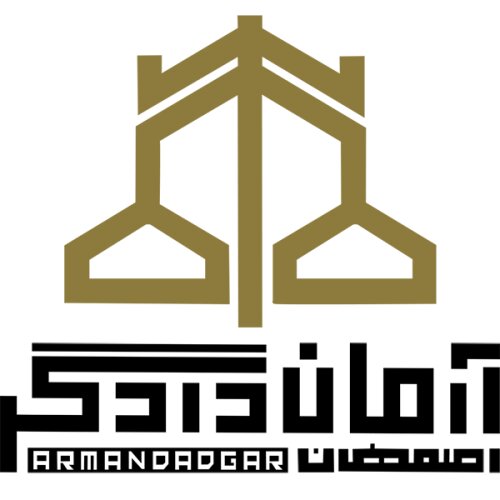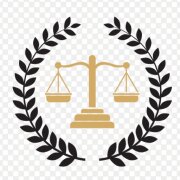Best General Litigation Lawyers in Isfahan
Share your needs with us, get contacted by law firms.
Free. Takes 2 min.
List of the best lawyers in Isfahan, Iran
About General Litigation Law in Isfahan, Iran
General litigation in Isfahan, Iran relates to the broad legal processes involving the resolution of civil disputes between individuals, organizations, or entities. It encompasses matters such as contract breaches, property disagreements, financial disputes, and other claims that do not fall under specialized courts like family or criminal courts. General litigation is governed by Iran’s Civil Procedure Code and implemented in local courts throughout Isfahan, aiming to provide fair hearings and remedies for grievances brought before the judiciary.
Why You May Need a Lawyer
You may require the assistance of a lawyer in Isfahan's general litigation cases for many reasons. Legal professionals offer guidance when disputes arise over contracts, property ownership, damages claims, or partnership dissolutions. Individuals may also need representation when facing lawsuits or when initiating legal action to protect their rights. Navigating the Iranian legal system is complex, and a licensed, experienced litigator helps ensure compliance with proper procedures, increases your chances of success, and safeguards against unintentional legal errors that could negatively impact your interests.
Local Laws Overview
General litigation cases in Isfahan are adjudicated under Iran's national legal framework, particularly the Civil Procedure Code which sets out how claims should be filed, defended, and resolved. Some notable legal aspects for those in Isfahan include:
- The necessity of filing claims at the correct local court within Isfahan province based on the dispute’s nature and parties’ residence or business address.
- The requirement for clients and lawyers to present evidence, witnesses, and written arguments.
- The use of both Persian legal forms and oral testimonies, with all proceedings conducted in Farsi.
- Strict timelines and procedural steps that must be upheld for filing, responding, and appealing decisions.
- Mediation or settlement opportunities may be encouraged during litigation to resolve disputes without a full trial.
Being informed of these regulations is essential for advancing your case or defending yourself in Isfahan’s courts.
Frequently Asked Questions
What is considered a general litigation case in Isfahan?
General litigation refers to civil matters that are not related to family, criminal, or administrative cases. This can include disputes over contracts, property, business relationships, debts, and other civil claims.
Which court handles general litigation cases in Isfahan?
General civil claims are mostly overseen by the Civil Courts of First Instance or the Public Courts located in various districts of Isfahan, depending on the parties’ location and the case’s subject matter.
What documents do I need to file a case in Isfahan?
You typically need identity documents, evidence supporting your claim (like contracts, correspondence, or receipts), and your written complaint or defense. Filing fees may also apply.
Do I need to appear in person at court?
In most cases, personal appearance is necessary especially for testimony. However, you can be represented by a licensed advocate who can attend on your behalf for many procedures.
How long does it take for litigation to conclude in Isfahan?
The timeline can vary greatly depending on the complexity of the case and court workload. Simple claims may take a few months, while more complex disputes can last several years through potential appeals.
Can I appeal a court’s decision in Isfahan?
Yes, most civil judgments can be appealed to higher courts within a specified period. An experienced lawyer can guide you on whether your case qualifies for appeal.
Is it mandatory to hire a lawyer?
You are not legally required to have a lawyer for most civil cases, but professional legal assistance is highly recommended for navigating procedures and protecting your rights.
What is the cost of hiring a general litigation lawyer in Isfahan?
Fees depend on the lawyer’s experience, the case’s complexity, and other factors. You should clarify fee structures and any extra costs with your lawyer before proceeding.
How do courts in Isfahan enforce judgments?
Once a court issues a final judgment, the Enforcement Department ensures compliance, which may include asset seizure, wage garnishment, or other measures allowed by law.
If I lose my case, will I pay the other party’s legal costs?
Typically, the losing party may be ordered to cover certain legal costs, but this does not always include all legal fees. Court-determined costs are calculated according to legal guidelines.
Additional Resources
Individuals seeking legal support for general litigation in Isfahan may find assistance through these resources:
- Isfahan Justice Department: The provincial judiciary authority where you can seek information on filing procedures and case status.
- The Iranian Bar Association (Isfahan Branch): Offers lawyer referrals, professional conduct oversight, and resources for the public.
- Legal Aid Centers (Markaz Hemayat Hoghoughi): These organizations can provide assistance to individuals who cannot afford private legal counsel.
- Council for Dispute Resolution: Provides mediation services as an alternative to traditional litigation in some civil disputes.
Next Steps
If you need help with a general litigation matter in Isfahan, begin by gathering all related documents and summarizing the facts of your dispute. Contact a local, qualified litigation lawyer to discuss your case and explore your options. You may visit the local Bar Association, seek recommendations, or consult online directories for a suitable legal expert. Be prepared to explain your situation clearly and inquire about timelines, processes, and estimated fees. Remember that early legal intervention improves your ability to protect your interests and increases the likelihood of a favorable outcome.
Lawzana helps you find the best lawyers and law firms in Isfahan through a curated and pre-screened list of qualified legal professionals. Our platform offers rankings and detailed profiles of attorneys and law firms, allowing you to compare based on practice areas, including General Litigation, experience, and client feedback.
Each profile includes a description of the firm's areas of practice, client reviews, team members and partners, year of establishment, spoken languages, office locations, contact information, social media presence, and any published articles or resources. Most firms on our platform speak English and are experienced in both local and international legal matters.
Get a quote from top-rated law firms in Isfahan, Iran — quickly, securely, and without unnecessary hassle.
Disclaimer:
The information provided on this page is for general informational purposes only and does not constitute legal advice. While we strive to ensure the accuracy and relevance of the content, legal information may change over time, and interpretations of the law can vary. You should always consult with a qualified legal professional for advice specific to your situation.
We disclaim all liability for actions taken or not taken based on the content of this page. If you believe any information is incorrect or outdated, please contact us, and we will review and update it where appropriate.










